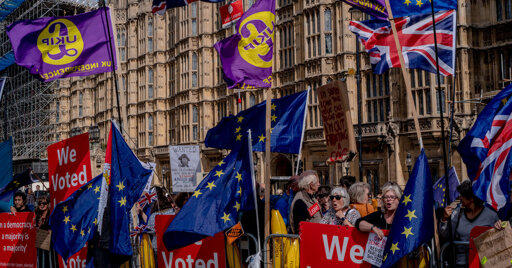I found this article interesting. Here are some quotes:
Brexit’s backers sold the project as a magic bullet that would solve the problems caused by a globalizing economy — not unlike Mr. Trump’s claims that tariffs would be a boon to the public purse and a remedy for the inequities of global trade. In neither case, experts said, does such a panacea exist.
“The truth is, Brexit did not correct any of the problems caused by deindustrialization,” said Tony Travers, a professor of politics at the London School of Economics. “If anything, Brexit made them worse.”
Mr. Trump’s MAGA coalition has some of the same ideological fault lines as the Brexiteers, pitting economic nationalists like Stephen K. Bannon against globalists like Elon Musk. That has led analysts to wonder if post-Trump politics in the United States will look a lot like post-Brexit politics in Britain.
“Brexit caused profound damage to the Conservative Party,” Professor Travers said. “It has been rendered unelectable because it is riven by factions. Will the Republican Party be similarly factionalized after Trump?”



I think democracy does a pretty good job of surviving when you have free and fair elections, and proportional representation probably makes politics even more democratic. In European countries that have maintained free and fair elections, they generally haven’t plunged into populism. Macron defeated Le Pen twice, for example. AfD have obviously grown their base in Germany, but they haven’t entered government. Hungary is arguably ruled by a populist, but some people would say their politics aren’t really free and fair anymore. If their politics remained free and fair then populism might have less power.